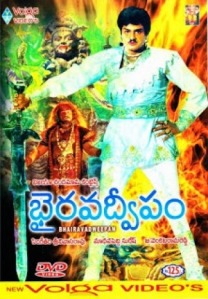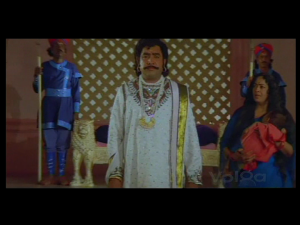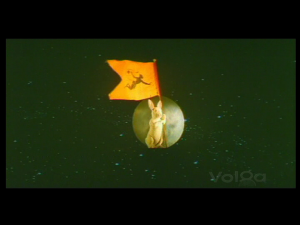
Mani Ratnam’s 1992 film Roja is the first of his so-called ‘terrorist-trilogy’; three films with a romance set against a political background of terrorist activity. Here he takes us to Kashmir, where the Tamil-speaking Roja struggles to plead her cause when her husband is kidnapped by Kashmiri separatists. This is a film primarily about the relationship between Roja and her husband but Mani Ratnam adds in a generous and slightly overdone slice of patriotism as well as providing some insight into the situation in Kashmir at the time. Most interestingly while depriving the Tamil-speaking Roja of a voice in Hindi-speaking Kashmir, the film gives the terrorists an opportunity to explain their thinking and the rationale behind their campaign. In addition to the stunning scenery and compelling story, Roja was the first film featuring a soundtrack by A.R. Rahman and it’s still ranks up there as one of his best. No wonder then that Roja won awards both nationally and internationally, and is still considered a classic today.
The opening credits roll over the sound of gunfire, helicopters and conflict, and the film starts with a bang as terrorist Wasim Khan (Shiva Rindani) is captured by the army in Kashmir. But the action quickly moves to a village near Tirunelveli, introducing Roja (Madhubala) in the beautiful song Chinna Chinna Aasai. It’s an effective contrast between the two worlds, and emphasises how easy it is to forget the violence in the north as we get pulled into the lives of the peaceful villagers in Tamil Nadu.
Cryptologist Rishi Kumar (Arvind Swamy) has come to the village with his mother (Sathyapriya) to meet his fiancée Shenbagam (Vaishnavi). He is first spotted by Roja and her younger sister who are favourably impressed with the sophisticated urbanite Rishi, but Shenbagam isn’t as smitten. She’s already in love with a local boy and persuades Rishi to reject the match – after which he tells Shenbagam’s family that he will marry Roja instead. Since Roja doesn’t know anything about her sister’s true feelings, she is horrified and angered by what she sees as a rejection of Shenbagam. It does seem surprising that Roja isn’t aware of her sister’s secret romance since otherwise they seem to have a good relationship, but perhaps Shenbagam is just very good at keeping secrets. She’s definitely champion of getting her own way, as in the end Roja has no say in the matter and she ends up getting married to Rishi.
Mani Ratnam captures the flavour of rural Tamil Nadu by involving the entire village in the vetting of the bridegroom and subsequent betrothal ceremony. No question is too personal and no subject off limits for the gaggle of aunties and uncles interrogating Rishi when he arrives, and to be fair he deals with their questioning well. Later, the gregarious group of aunties act almost like a Greek chorus as they chaperone Shenbagam and Rishi during their ‘private’ conversation and I love that Mani Ratnam involves them in the entire process, even in this song to celebrate the wedding and first night.
After moving to the city, Roja discovers the truth behind Rishi’s change of mind and her initial anger develops into an appreciation of his good qualities. This understanding deepens into romance, so when Rishi is sent to Kashmir for work, Roja insists on accompanying him rather than wait at home. She doesn’t seem to know much about the political situation in Kashmir, which is shown by her naïve questions to Rishi on their arrival. I find this lack of awareness interesting, and I wonder if this regional isolation can still exist to-day in the age of 24/7 news, Smartphones and the internet? I can’t decide if Mani Ratnam is trying to educate the rest of India about the Kashmir situation with these dialogues, or simply to show how much faith and trust Roja has in her husband, to blindly follow him without any idea of where she is going to end up. Probably both!
Once in Kashmir, the relationship between Roja and Rishi continues to bloom. There is excellent chemistry between Arvind Swamy and Madhubala and the developing romance is hot enough to melt the snow. Mani Ratnam cleverly uses teasing interactions between the two to deepen their relationship and show their obvious enjoyment in each other. But just as everything seems to be falling into place, Rishi is abducted by a group of masked men in a minivan. Roja immediately chases after the van, and it’s only when the van is long out of sight that she falls to her knees – even then, it’s more from disbelief at the situation rather than a gesture of despair. Roja is a woman of action and she’s not going to let the terrorists get away with their abduction.
While Rishi is held by the terrorists, Roja is determined to fight for his freedom, but she immediately runs into difficulties as she doesn’t speak or understand the language. As with Divya’s character in Mouna Ragam, she is also isolated by being so far away from home and familiar surroundings, however Roja has something to fight for and a reason to make herself heard. Eventually she is directed to Colonel Rayappa (Nasser) who is in charge of the search and who handily also speaks rudimentary Tamil. While Roja wants her husband home at any cost, Colonel Rayappa is more aware of the political realities of the situation and exactly what the terrorists demands to free Wasim Khan mean. The political discussions here are excellent, with Roja passionately arguing that the army has a duty to her husband as Rayappa tries to make her understand that the government will not willingly release a known murderer.
Meanwhile, Rishi tries to engage the terrorists by drawing their leader Liaqat (Pankaj Kapur) into conversation. Again, the politics of Kashmir are brought into the dialogues as Liaqat explains the separatists fight for freedom and independence, all of which makes little sense to the staunchly patriotic Rishi. Some of Rishi’s decisions seem quite extreme, such as when he demonstrates his patriotism in a situation where he knows it will only lead to a severe beating, or perhaps even death. Although, since he passionately opposes the release of Wasim Khan, perhaps that is actually part of his intention, but it’s not at all clear. Rather, for much of his imprisonment, the politics take second place as Rishi stares out of his barred window thinking about his wife.
Madhubala is outstanding here and her drive to find her husband along with the passion in their relationship come through very clearly. Her transition from rebellious village girl to determined wife is beautifully done, and she manages to show her character’s resilience tempered with despair exceptionally well. Arvind Swamy is just as good, aside from the brief forays into patriotism where the dialogue and actions do seem rather forced. Best of all are his interactions with Liaqat where the dialogues allow an exploration of the politics surrounding separatist violence in Kashmir. This theme is one that Mani Ratnam expands on much more in his later film Dil Se, but the seeds are sown here with at least glimpses of the separatists’ point of view. Liaqat too is a more sympathetic character than might be expected, although he’s marked as a ’bad guy’ by a rather large mole on his nose, which does at least make him easily identifiable when the terrorists are masked.
Roja has a perfect mix of engaging story, stunning scenery and beautiful music that all combine to produce a classic film. The actors are all excellent throughout and bring their characters realistically to life. Madhubala in particular shines as the central character and provides a strong focus to the story, while the mix of romance, action, suspense and politics is well judged to keep that focus clear.
Mani Ratnam always excels when he films relationships, but here he adds a wider viewpoint as the social problems within Kashmir intrude upon Rishi and Roja’s personal life. The juxtaposition of Roja fighting to reunite with her husband with Rishi’s attempts to persuade the terrorists to embrace a united India acts to bring the personal and the social aspects together and there is effective contrast between Roja’s love for Rishi, and Rishi’s patriotic belief in his country. That doesn’t mean that Rishi doesn’t love Roja, but his fight is to turn the terrorists from their course, while Roja is single-minded in her quest to find her husband. A.R. Rahman’s music is the icing on an already rich cake while Santosh Sivan impresses with his excellent camerawork. I love this film and each time I watch I am amazed all over again by the richness and depth of both the story and the dialogues. Simply brilliant! 5 stars.





































































































